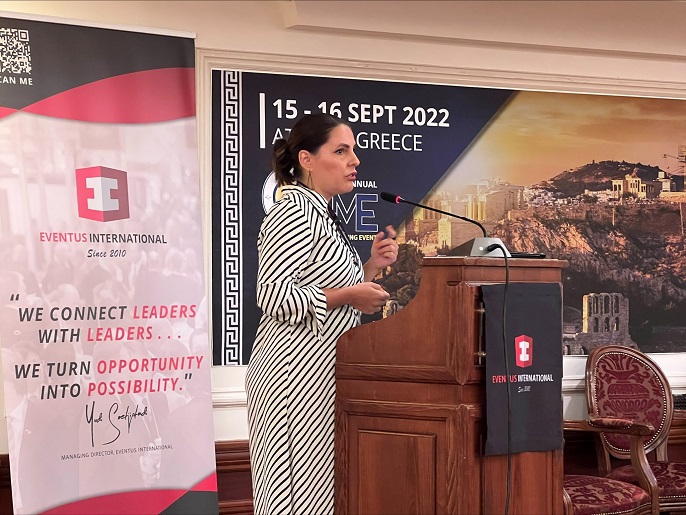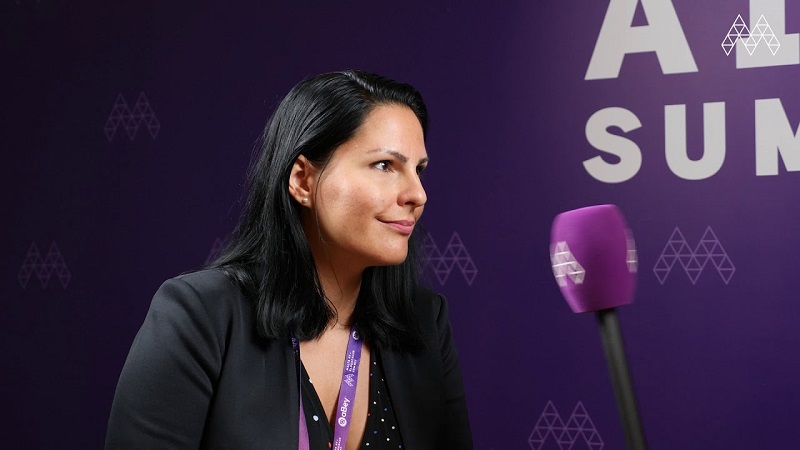“One of my old clients called me ‘my angel’, because I resolved many of his banking problems” — Interview with founder of the payment consulting firm PSP Angels Viktoria Soltesz

We continue our series of interviews with prominent figures in the world of gambling, and our guest today is Viktoria Soltesz — founder of the payment consulting firm, PSP Angels. She kindly agreed to answer our questions and shared plenty of interesting aspects about one of the most important issues in the industry.
Viktoria will tell us about everything related to payments in the casino: how the banks do their work, why some casinos set withdrawal limits and why they take a fee for transactions, and also what affects the withdrawal time.
Learn about this and much more with today’s guest.
— Introduce yourself, please, and tell us a little about yourself.
— I am the founder of the payment consulting firm, PSP Angels, which helps online businesses optimize their payment flows and costs by finding the best payment and banking solutions. (pspangels.com)
I am also the Partner of a boutique firm in Malta, which was created to improve the payments processing infrastructure for clients within the iGaming industries, specifically.
I also run my finance and tax consulting firm in Cyprus for over 15 years now.
I have extensive experience with payment issues and high risk industries.
I used to lecture at the University of West London and I am a regular speaker at iGaming, blockchain, fintech and investment conferences. In my free time, I like to travel, which I am combining with the speaking opportunities.
— Tell us how you got into iGaming, how your career developed. What do you like most in the industry?
— I started my career as an accountant around 15 years ago in Cyprus. Back in the day we set up offshore companies and advised clients about legal tax optimization structures. As compliance got more and more widespread and strict, the clients were less interested in their taxes, but were seeking solid and stable banking options. Since it was my job to advise them on the different banking options, I searched, but could not find any achievable “payment market intelligence” information online, which could explain how banks think. For several months I did not understand why some applications were accepted while some of them were rejected by different banks.
That’s when I realized that there is a huge gap in the market for payment consulting services, mainly for someone who is dealing with high risks verticals. Online businesses are more and more popular, but the online payment industry somehow is a “secret society” whereby everybody knows everyone, and you can only open up an account with certain providers, if you have a contact person or get an introduction. I still believe that the high-risk online payment industry is seriously lacking achievable information.
This was the first time I met the gambling industry, which is a very unique vertical on its own. iGaming and betting companies usually have huge volumes but very specific, and sometimes missing, regulations, which can be confusing for “traditional bankers”.
There is an interesting duality: this specific vertical is financially desired, due to the volume, but a very high risk target for the banks, thanks to a potentially bad reputation, and also the possibility for money laundering and tax evasion. Additionally, the industry is changing all the time, new regulations come up every day and it is very time consuming and expensive to keep an up-to-date compliance procedure for this specific industry.
This resulted in a very interesting specification on the market. There are now particular financial institutions and payment methods that are actually targeting this vertical, and are experts with the latest regulations, trends and payment needs. But these companies come and go, merge and change fees all the time, so operators will need an industry expert to guide them and maintain a healthy payment flow.

— You are an expert in assisting high risk industries such as crypto, iGaming, gaming & betting, casinos. Why are these industries considered high risk?
— To reply to this question, we need to understand how banks think. Banks have a portfolio which consists of low and high-risk companies which are charged differently from banking services. Obviously low risk clients are the ones who every bank wants: the supermarket, the shoe shop or any other online product. Not many things can go wrong with these companies. Perhaps the seller is doesn’t send the product and there is a chargeback, but other than that, there isn’t much potential for money laundering, serious tax evasion, or health hazard because everything is pretty straight forward. Since these online companies are desired by all payment providers, there is huge competition, which pushes the banking fees low on the market.
To generate profit, banks need to onboard higher risk clients in order to charge them higher fees, while they still need to maintain a healthy balance in their portfolio. Therefore, the classification of high risk is very subjective and many times is based on the existing low risk clientele of a specific bank.
It’s one thing when the player deposits the funds, but the winnings opens up a whole new Pandora’s box of issues in regards to tax evasion and money laundering. We are talking about online services which are approached by multiple players from various countries in the world. Every country has not only a specific legislation but different tax treatment and banking policy, which makes the operators’, and therefore the payment providers’, who are also responsible for handling payments on behalf of the operators, life very difficult. This industry can be a slippery slope to illegality and it’s very easy to miss one regulation or document and slide into this category, whereby the payment provider gets a hefty penalty for non compliance or for assisting in money laundering.
The good news is that usually iGaming and betting is the most “liked” high risk category because the volumes make up for the increased risk of penalty for the banks and the payment providers. Plus, in a unique way, here the payment provider charges twice: when the client is depositing an, also when they are winning.
— In one of your interviews you said “Many people do not realize they are considered ‘high-risk’ until they get rejected from all banks and payment providers, which puts their whole operation on hold”. How often does this happen in casinos? What happens to player payouts?
— Casinos are less likely to be surprised when someone tells them that they are high risk, since gambling and betting has also always been considered as a “risky industry” for multiple reasons. But we still meet several clients who are coming up with a new business model where their clients can gain financial benefit by participating in a draw or they introduce any other type of “winning” when purchasing a product.
Also, sometimes offshore regulated companies act surprised when we explain to them that certain jurisdictions restrict gambling and betting activity altogether. Several operators only learn that some of the countries have their own gambling and betting regulations when they try to enter this new market and get rejected by local payment providers or banks. Unfortunately, it is not unusual for us to explain how regulation works and why they need to get the license.
— Sometimes payouts are received within a day and sometimes this procedure takes up to 10 working days? Why?
— Handling payments for high-risk industries is a challenge on its own, but for gambling and betting companies we have to deal with very unique expectations such as alternative payment methods, anonymity and pay-outs, which might not be present in other online companies. High risk friendly financial companies might get a serious penalty or even lose their license on a mistake. Although we all expect quick pay-outs, many times the compliance of the operator or the payment provider is taking their time to do double checks before releasing any payment to a winner, to eliminate even the possibility of wrongdoing. The speed of a pay-out usually depends on multiple variables: the amount, the jurisdiction of the bank, operator or the client, and the experience of the compliance officer who is releasing the payment and the supporting documents.
Also, there are restrictive laws in certain countries, which limit paying out to another channel other than the one where the deposit came from.
Unfortunately, people can be very creative when it comes to tax avoidance, so the government’s responsibility is to make sure no one is cheating the system. They can only enhance these checks through the financial institutions who handle these funds. That is why every company, who is holding third party funds for even a second, need to report it, under their relevant financial license.
— Why do some casinos have withdrawal limits per week or month? Does it depend on the operators or is it something else?
— This decision is also based on money laundering and tax avoidance rules, like everything else. There are certain limits which need to be reported in a different way to different authorities. If you win 20 euros, and “forget” to pay tax, this might not pose a threat for any government’s budget, but larger funds obviously need more checks to make sure that all the laws and financial regulations are met. Many times these internal decisions can eliminate fraud. We have seen some very creative solutions when it comes to bonuses, cash outs and arbitrage.
— Why do some casinos charge withdrawal fees? Operators set the amount of commission by themselves or are they charged by the bank?
— Every time money moves, someone needs to provide the service which means someone needs to get paid. Casinos are working with payment service providers, so obviously there is a service fee associated with this transfer. The operator can decide to swallow this fee or delegate it to the client. Usually it’s an internal, marketing decision. But this can also be a psychological decision, because if it costs a lot to withdraw your own funds, you’re more likely to wager again on the game. It really depends on the operator, the jurisdiction, or the goals of the company.
— Why are not many casinos accepting cryptocurrency, despite its growing popularity? Is it because of payment difficulties or are there other reasons?
— It’s a fact that cryptocurrency acceptance has the lowest fees and is the quickest payment method so far. It is also a fact that it is very hard to check the source of funds. So casinos are already facing one big problem when accepting such payments.
Also not everybody is so tech savvy to be able to take advantage of this payment method, or simply do not want to spend cryptocurrency as a form of payment because they are hoping that the value will grow (the “Hodlers”). So, in this sense, cryptocurrency acceptance has not reached “mass adoption” yet. Even if a casino offers cryptocurrency payment methods, not that many clients will take advantage of it. So we always need to evaluate if the cost of application, acceptance, integration and maintenance of such a solution will actually be worth it.
The other aspect is the increased level of risk. Finding an industry friendly bank or payment service provider is already a challenge, so if you add an extra layer of red flag by introducing a non-regulated financial asset to your banking means, this might shoot your risk profile to the sky and get you cut off from your existing or potential payment service providers.
There are however dedicated casinos which are only accepting cryptocurrency, so obviously these operators made a decision to target a specific clientele where the traditional banks usually don’t intervene. But mixing the two worlds can sometimes do more damage than benefit.

— Why did you name your company PSP Angels? Is there a story behind the name?
— One of my old clients called me “Angele mou” which means “my angel” in Greek, because I resolved many of his banking problems. I felt this name really represents what we are trying to achieve as payment consultants. PSP is the abbreviation of payment service providers, and we are the Angels who are guiding you through this maze.
— There are more men than women working in finance, banking and iGaming. Have you ever felt any prejudice just because you are a woman?
— I never felt any discrimination for being a woman, but perhaps because I am a very tough cookie. (laughs) I personally believe that this lockdown had one very good outcome: remote work is really closing not only the gender, but the racial gap as well, and is creating true equality in the workplace.
— Share your plans for the future.
— “Unfortunately,” we are very busy. I say unfortunately because that means that there is still a huge confusion in the market when it comes to high-risk payment processing. I think unless we have a unified, global tax, AML, gambling and betting regulation, the payment hurdles will remain. I don’t really see an end to it anytime soon to be honest.
We started to consult banks, payment service providers and gateways and we also assist land based casinos with their online presence. Our job, as payment consultants will be more and more in demand as more and more companies are going online.
— Do you gamble or are you only involved with iGaming for work? If so, what do you play?
— I remember a long time ago a conversation I had with a good friend of mine, who is a stockbroker. As usual, we discussed market movements and investment opportunities and tried to predict the future. He suddenly asked me: how would you feel about an investment which can double your capital within one second with a 50% chance? I said “amazing” so he told me to go and play roulette. (laughs)
As you know, this return, speed and chance is unheard of in the traditional investment market and considered a very good investment. I was amazed to learn that the only difference between gambling and investment is actually your perception. So, yes, I do gamble, but I do it with my investments…


